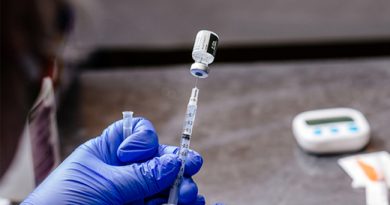Is Monkeypox going to be the Next Pandemic? – Prevention and Herbal Remedies
Abstract
Monkeypox virus – a double-stranded DNA virus in the genus Orthopoxvirus, family Poxviridae. The virus was first identified in captive monkeys and is found mainly in tropical rainforest regions of Central and West Africa. Here in this article, we will discuss this trending problem Monkeypox and other associated concerns. Monkeypox is carried by a primates group of animals. It is a zoonotic viral disease, its prime origin is tropical rainforests of central and west Africa, and it is then exported to other countries. Clinically Monkeypox resembles smallpox but is less contagious than smallpox.
Introduction
As the name indicates monkeypox was first identified in the colonies of Monkeys. It was detected in humans in 1970. As we have discussed Monkeypox is a double-stranded DNA virus that spreads from person to person. The basic modes of transmission include face transmission, via skin contact, mouth-to-mouth transmission, and predominant transmission through sexual contact. Monkeypox virus can contaminate the clothing, towels, and surfaces of contact. This is my favorite type of transmission. Monkeypox is not that fatal but nobody can pretend the future changes and level of loss, so the important thing is to take precautions and follow the guidelines.

Symptoms
As we have discussed monkeypox can spread from person to person from direct contact like physical intimation, kissing, and unprotected sex with multiple sex partners. Following are the most common symptoms associated with Monkeypox–
The most common symptoms of monkeypox include
- Fever, muscle aches, headache, pain in the back, low levels of energy, and swollen lymph nodes.
- Rash development can last for two to three weeks.
- The inflammation can be found on various body parts mainly the soles of feet and hands.
- The lesions can be multiple or even thousands.
- Monkeypox can cause a range of signs and symptoms which may vary from person to person like swollen lymph nodes.
- While some people have mild symptoms, others may develop more severe symptoms and need care in a health facility.
- Those at higher risk for severe disease or complications include pregnant people, children, and immunocompromised persons.
Monkeypox A pandemic or not
Pandemic means a disease originating in an area and spread over a wide geographical area affecting a significant proportion of the population. Hence Monkeypox according to the above criteria is a pandemic but is not covid likewise as per the rate of spread and fatality. The big difference between monkeypox and COVID is that monkeypox is much less effective in spreading. Monkeypox is not able to be aerosolized in the air. Secondly, the dose required by Monkeypox to infect the masses is high.
Prevention — Prevention is better than cure
- It is important to wash hands to avoid the disease and its transmission. Soap or alcohol-based solutions should be used to wash the hands and to avoid the spread of the diseases.
- It is important to avoid touching the mouth, nose, and eyes with the infected hands.
- To avoid the spread it is important to wear a mask and dispose of it in the proper place.
- Avoid gatherings, or follow the safety because you don’t know where the virus is.
- It is important to clean the household surfaces every day. Vaccines prevalent to control smallpox are also good for the eradication of monkeypox. Research is going on to find the proper vaccine to get rid of the virus
Ayurvedic Aspect and Management
In Ayurveda, we can correlate such infections with Janpadodhavnsa. In Charaka Samhitha there is a description of Pathophysiology of Pandemics/Epidemics. In the context of Monkeypox, we will explain the Janpadodhwansa explained in the Vimana sthana of Charka Samhita. Adharma– Activities that are against the basic principles of nature like homosexuality, multiple partners and not following the achar rasayan mentioned in the Ayurveda. Adharma is also concerned with evil thoughts which we can see rising dramatically. Also, adharma is the destruction of principles of Air, Water, and land. Disturbed land ecologies, and destruction of mountains, forests, and land ecosystems, eating the meat of animals, eating raw may lead to the poor aura of the natural systems and lead to pandemics.
Ayurvedic management depends on the pacification of the vitiated dosha and cleansing of the blood from the toxins produced by the infective organism. Furthermore, the condition is also managed by boosting immunity and other herbs which possess a number of properties that are against the factors which caused the illness.
Giloy decoction is a well-known immunity booster and it can be beneficial in patients with Monkeypox. Giloy ghan vati also helps to reduce fever due to its antipyretic properties. Tulsi leaves can be given in the stage of cough and cold in the form of tea or decoction. Tulsi also reduces fever and acts as an antimicrobial agent. Turmeric powder or Cinnamon can be given as it is beneficial to drain out the toxins and act as an anti-inflammatory agent.
Herbal Remedies for Monkeypox virus by Planet Ayurveda
Planet Ayurveda is a GMP certified, ISO 9001:2015 certified, and US-FDA registered company and a hub for Ayurvedic management of disease and product manufacturing. The prime goal is to spread Ayurveda to the whole world through a targeted treatment approach and quality ayurvedic products. Products formulation is based on the classical ancient ayurvedic texts and updation is oriented as per new health issues worldwide. As we have discussed Monkeypox in this article. A problem targeting humanity, lifespan, economies, and many more. The world is not at the stage to face such a problem again as we are still trying to recover the losses from Covid 19. Ayurvedic herbs prevalent around us are helpful to enhance immunity and are able to increase the immunity and disease-fighting capacity of the body. Following are the herbal remedies by Planet Ayurveda for the problem of Monkeypox and to increase the immunity of an individual.
- Curcumin Capsules
- Septrin Tablets
- Maha Sudarshan Kwath
- Gandhak Rasayan
Product Description
1. Curcumin Capsules
Curcumin Capsules are loaded with the natural extract of haridra (Curcuma longa). Haridra is anti-inflammatory, antimicrobial, and antiseptic in nature. These properties of Curcumin are helpful to promote immunity and help to drain out the toxins. The drainage of free radicals and toxins due to the antioxidant properties of curcumin capsules helps to promote the good and reduce the impact of viral infection.
Dosage – 1 capsule twice a day with plain water after meals.
2. Septrin Tablets
The chief ingredients of Septrin tablets are Haldi (Curcuma longa), Pippali (Piper longum), Sonth (Zingiber officinale), and Marich (Piper nigrum), Tulsi (Ocimum sanctum), and Guggul (Commiphora mukul). The Septrin tablets are beneficial to reduce the infectious state of the body and help to fight the infection. The analgesic and antipyretic properties of the Septrin tablet are helpful to reduce throat pain and associated fever in viral infection. The Septrin Tablets are used in a number of infectious conditions caused by a number of microbes including bacteria, viruses, protozoa, fungi, etc. Therefore it pacifies the fever and pain associated with Monkeypox. With all these properties Septrin tablets are best used in Monkeypox virus illness.
Dosage – 1 tablet twice a day with plain water after meals
3. Maha Sudarshan Kwath
Maha Sudarshan Kwath is a classical ayurvedic formulation that is composed of the goodness of the herbs namely haritaki (Terminalia chebula), amala (Emblica officinalis), bibhitaki (Terminalia Billerica), Haldi (Curcuma longa), kachoor (Curcuma eodaria), sonth (Zingiber officinale), pippali (Piper longum), giloy (Tinospora cordifolia), kutki (Picrorhiza kurroa), pitta papada (Fumaria parviflora), sugandh bala (Valeriana wallichii), ajwain (Trachyspermum ammi), Vacha (Acorus calamus), vanshlochan (Bambusa arundinacea) and many more. This classical Ayurvedic formulation of Planet Ayurveda is used in fever and influenza-like symptoms of Monkeypox. Due to the presence of a wide variety and types of ingredients, it is helpful to drain out the toxins and free radicals thus improving immunity and minimizing the chances of infections.
Dosage – 2 tsp twice a day after meals
4. Gandhak Rasayan
The chief ingredient of Gandhak Rasayan is shuddha gandhak (purified sulfur). Gandhak Rasyan benefits the body as it helps to prevent fever and manage skin problems in a number of terms. It reduces fever, treats skin conditions such as rashes and blisters, and acts as a potent antimicrobial, antiviral, antibacterial, anti-inflammatory, anthelmintic, antioxidant, and antipyretic agent. Gandhak Rasayan is beneficial to managing the condition of Monkeypox on the basis of the above properties.
Dosage – One tablet twice a day with lukewarm water after meals.
Conclusion
Monkeypox virus is a topic of discussion and a matter of concern these days. People around the globe are afraid as they have faced and are still facing a disastrous pandemic like Covid 19 which is associated with loss of lives and left families in deep sorrow. The Loss of economies and moral breakdown of the world are also evident. After facing such a big challenge, not even a single Nation wants to be in such a situation again for that policy making and implementation of that policy are very important. People should follow the guidelines made by the authorities and follow the treatment regimen. Ayurvedic herbs and remedies by Planet Ayurveda may help people to get long-term immunity from such recurrent health issues. This is the time to follow the Satvik Lifestyle to get a good and healthy life. Monkeypox may be the next pandemic but not the next covid. Proper policy-making and implementation with a positive approach by the public will help the world to get rid of Monkeypox.







